In our absolutely final post of this mini-series about the effect of the current pandemic on the translation and publishing industries, we invited translators to speak to us about how the situation has affected them professionally and personally. We hear about the real problems of working with children and spouses at home, loss of income and unrelenting deadline pressures – but we also hear about new discoveries, re-evaluations, and hope for the future.
Here are some of their stories.
??”For a translator already working full time from home, you’d think times of quarantine would be business as usual. But of course, it’s more complicated than that. For one thing, my family is now permanently installed in my home office (they think of it as their house). While other translators in my professional network, in fields like marketing and law, have seen a huge drop in business as their clients closed up shop, my clients – the authors, artists, screenwriters – seem to be working overtime, passing plenty of translation work on to me. They all have more time to write, and a new topic to address: the virus. The news articles I translate every week are full of pandemic politics. The animated creatures in the children’s TV show hassle each other about wearing masks. The artist in New York gives interview after interview about his creative take on social distancing and the metaphorical meaning of contagion. Yevgeny Vodolazkin’s coronavirus play had to be translated fairly quickly (two weeks). Hamid Ismailov’s coronavirus story had to be translated almost immediately (five days, during the same two weeks I was translating Vodolazkin) [you’ll find it in this anthology of international coronavirus fiction from Restless Books, published August 2020: And We Came Outside and Saw the Stars Again]. 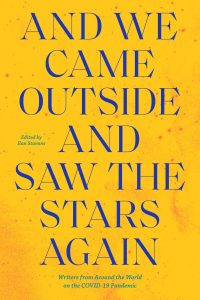 My translations of quarantine poetry from Kazakhstan were accepted in record time, by two journals in the space of a weekend. So along with the general distress of knowing the world is falling apart around us, there has been this sense of urgency, that this is a time to work faster, more seriously – at least on topics related to the plague. Is it due to the fear that the virus could wipe us all out any day now, the sense that we have to get done as much as possible before we’re inevitably debilitated by illness or, for instance, the people who keep the internet running stop showing up for work? Or is it the perverse fear that the virus could disappear, cease being an issue, that readers could lose interest in everything being written (and translated) about it? How strange it feels to take advantage of a global calamity this way, to translate straight through the crisis, about the crisis, hoping desperately to finish your work and get it out in the world before it’s no longer relevant – while all the while also wishing desperately for the opposite, for the whole mess to disappear and for life to get back to normal, so that nobody will ever need to think, write, or translate about COVID-19 ever again. As far as I remember, there are plenty of other things to write about. Aren’t there?” – Shelley Fairweather-Vega (translator from Russian and Uzbek)
My translations of quarantine poetry from Kazakhstan were accepted in record time, by two journals in the space of a weekend. So along with the general distress of knowing the world is falling apart around us, there has been this sense of urgency, that this is a time to work faster, more seriously – at least on topics related to the plague. Is it due to the fear that the virus could wipe us all out any day now, the sense that we have to get done as much as possible before we’re inevitably debilitated by illness or, for instance, the people who keep the internet running stop showing up for work? Or is it the perverse fear that the virus could disappear, cease being an issue, that readers could lose interest in everything being written (and translated) about it? How strange it feels to take advantage of a global calamity this way, to translate straight through the crisis, about the crisis, hoping desperately to finish your work and get it out in the world before it’s no longer relevant – while all the while also wishing desperately for the opposite, for the whole mess to disappear and for life to get back to normal, so that nobody will ever need to think, write, or translate about COVID-19 ever again. As far as I remember, there are plenty of other things to write about. Aren’t there?” – Shelley Fairweather-Vega (translator from Russian and Uzbek)
??”While I’m lucky enough to have had a few of my translations published in journals and other websites, I’m still very much an early career translator, so I don’t earn any money from literary translation. I spend the majority of my working day on different forms of commercial translation, mostly from Spanish, since I live in Madrid. For me, then, despite all the problems it brought, being confined to my small flat for several months at least opened up new stretches of time I could devote to Russian literature and literary translation. One of the most positive aspects of this was being able to spend more time reading speculatively, allowing myself to stumble across new, interesting, unexpected writing. This, in turn, led to one of my most rewarding lockdown experiences.

Ekaterina Simonova
Whilst reading the latest issue of the journal Interpoezia, I came across a couple of poems by Ekaterina Simonova, a poet based in Ekaterinburg, collectively titled ‘Я думаю только по-русски’ [I only think in Russian]. I loved these poems and knew immediately that I wanted to translate them. Fortunately, another author I’ve worked with was able to put us in touch. Over the course of lockdown, I translated a number of her poems, mostly from her latest collection ‘Два ее единственных платья’ [Her only two dresses], and I greatly enjoyed our correspondence. She was always very happy to help clear up anything I wasn’t sure of, and she was very supportive. I’ve sent some of the translations to journals, and I’m planning to submit the poem ‘Помнить снег’ [Remembering Snow] for the Stephen Spender prize this month. Who knows what will happen or when they’ll see the light of day, but I’m delighted to have got to know her and her poetry. She’s even promised to post me a copy of her previous collection once things in Russia have calmed down a bit. I think I’ve had it pretty easy during lockdown, but whatever difficulties I have had, reading and translating Russian has been a constant source of joy.” Robin Munby (translator from Russian, Spanish, and Portuguese)
?? “There are a few challenges as I see it.

One of Julia’s recent translations
One, the low-grade anxiety — this country [the US] is so much better than what we are seeing. Two, I am extremely sensitive to word choices, more than ever before, seeing the linguistics effects of the current environment. And finally, writing may be a solitary occupation, but translation is nearly always a team effort (writer/translator/editor), and this process is evolving — something that I am trying to adjust to. My writers are in LA, my editor and agent are in NYC, and I am in Boston — the epicenters of both COVID-19 and civil unrest. This makes our priorities shift almost daily, pushing forward deadlines and defining creative choices. We need good literature now, we need different voices, and that’s where translators come in. Oh, one more thing of a more practical nature. The novel I am working on is aptly named Pandem and remarkably timely, although written circa 2003) was commissioned by a Russian businessman.” – Julia Meitov Hersey (translator from Russian)
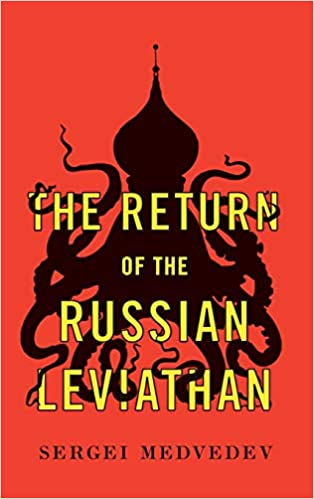
Stephen Dalziel’s translation of this book has been shortlisted for the 2020 Pushkin House Book Prize
??”Translation has played a huge role in helping me through lockdown. I received a new commission to translate a book from Russian in February, so this has given me a focus for virtually every day. Being in regular e-mail contact with the author has helped enormously, too. As long as works are required to be translated and we receive the commissions, I believe we are in a very fortunate place, and will continue to be in ‘the new normal’” – Stephen Dalziel (translator from Russian and former Russian affairs analyst for the BBC).
??”I’ve been very fortunate in that I’m working on a long-term project that was commissioned before the pandemic, so I haven’t found my work drying up. I am working on a Russian historical crime thriller by Yulia Yakovleva, which is a dream come true, but the circumstances in which I’m working are far from what I imagined when we signed the contract! My sons haven’t been to school since 16 March and won’t go back until September, so my working hours were reduced straight away to around 3 hours a day. In the first few weeks of lockdown I started my work day at 4pm when my husband finished his full-time hours, but as I was so tired after a full day with the kids I started trying to get up early (for me!) and work 7-9am before he starts. We’re lucky to have an office and we take it in turns: we have two desks, each with our own computer and screen, but only one chair between us (otherwise I think we would both go and hide from the children at the same time!) 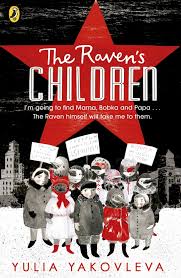 Happily my publisher was able to extend the deadline for this book as there was no way I could have finished by the end of July as planned. I’ll be working on it until mid-September now, when I’m due to be starting a German nonfiction book. Every day that I’ve struggled to meet my daily translation target I have wondered whether I shouldn’t have asked for a longer extension, but I wanted to avoid further delay on the German book. I lost around £2000 worth of adjunct projects including teaching on the Warwick Translates literary translation summer school, a talk about children’s literature in translation scheduled for the ITI & Friends festival, and a translation slam at London Book Fair. I also had to cancel a weekly part-time teaching commitment because I didn’t think I could cope with teaching online alongside my ongoing translation work. But part of me was relieved when the events were cancelled as it was around March that I realised how much I had over-committed this year. I was eligible for a grant via the Self-Employment Income Support Scheme, and by coincidence it was very close to the amount I had lost due to cancelled projects. This has been a testing time but in many ways it has felt like going back a few years to when I was translating challenging books in challenging circumstances with toddlers and babies and not enough sleep. At least during the lockdown I’ve mostly had better sleep, although strangely since the lockdown has partially lifted I have struggled more with anxiety and insomnia. I think the initial weeks of lockdown were such a retreat from the normal rush that I was finally able to shut off the world and recuperate after a stressful winter. Now I have just as little time to work but need to translate five pages a day compared to the three a day I was managing at the start of lockdown; unsurprisingly, anxiety about the approaching deadline is starting to creep in. But as with every project I have found that I’ve sped up as I’ve got into the book, so fingers crossed I’ll get there in time for about a week off in between the first draft and the edits.” – Ruth Ahmedzai Kemp (translator from Russian, German, and Arabic and co-founder of World Kid Lit )
Happily my publisher was able to extend the deadline for this book as there was no way I could have finished by the end of July as planned. I’ll be working on it until mid-September now, when I’m due to be starting a German nonfiction book. Every day that I’ve struggled to meet my daily translation target I have wondered whether I shouldn’t have asked for a longer extension, but I wanted to avoid further delay on the German book. I lost around £2000 worth of adjunct projects including teaching on the Warwick Translates literary translation summer school, a talk about children’s literature in translation scheduled for the ITI & Friends festival, and a translation slam at London Book Fair. I also had to cancel a weekly part-time teaching commitment because I didn’t think I could cope with teaching online alongside my ongoing translation work. But part of me was relieved when the events were cancelled as it was around March that I realised how much I had over-committed this year. I was eligible for a grant via the Self-Employment Income Support Scheme, and by coincidence it was very close to the amount I had lost due to cancelled projects. This has been a testing time but in many ways it has felt like going back a few years to when I was translating challenging books in challenging circumstances with toddlers and babies and not enough sleep. At least during the lockdown I’ve mostly had better sleep, although strangely since the lockdown has partially lifted I have struggled more with anxiety and insomnia. I think the initial weeks of lockdown were such a retreat from the normal rush that I was finally able to shut off the world and recuperate after a stressful winter. Now I have just as little time to work but need to translate five pages a day compared to the three a day I was managing at the start of lockdown; unsurprisingly, anxiety about the approaching deadline is starting to creep in. But as with every project I have found that I’ve sped up as I’ve got into the book, so fingers crossed I’ll get there in time for about a week off in between the first draft and the edits.” – Ruth Ahmedzai Kemp (translator from Russian, German, and Arabic and co-founder of World Kid Lit )
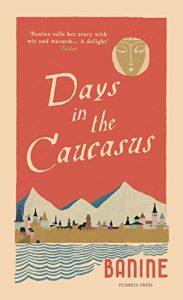
??”The biggest blow for me – Azerbaijan’s literary translation centre postponed a commission to translate a novel and collection of reviews, because the fall in the oil price means they’re short of money. Luckily I had only just started the project. On the plus side, it has given me time to start work on a pitch for a different Azerbaijani novel, which I’m passionate about. I’m anxious, though, that it will be even harder to find a publisher in these challenging times. As ever in my professional life, I’m juggling other writing work with literary translation to earn a living. I was sorry to miss the London Book Fair, as it was to have been a treat after completing translation of a history book, this one from Russian. I was even sorrier not to have a party in April to celebrate the publication of the paperback version of an extraordinary memoir, Days in the Caucasus, by Baku-born author Banine. A plus side of the pandemic has been some excellent online webinars and workshops from the Society of Authors and Federation of Entertainment Unions (I can access the latter as a member of the NUJ). No more excuses – I’ve had all the training and must make time to finish my website and boost my social media activity!” –Anne Thompson-Ahmadova (translator from French, Russian and Azerbaijani)
A sincere thank you to everyone who has participated in this ten-part mini-series on Russian-English translation and the coronavirus crisis! We wish you the best of luck in meeting your goals, staying healthy, active and sane, and we hope you continue to find both inspiration – and readers!
 In the very last interview of our blog mini-series, RusTrans speaks to Will Evans, an award-winning publisher, writer, translator, bookstore owner, and literary arts advocate. He is the founder and executive director of
In the very last interview of our blog mini-series, RusTrans speaks to Will Evans, an award-winning publisher, writer, translator, bookstore owner, and literary arts advocate. He is the founder and executive director of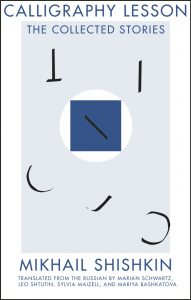 Now that’s a familiar feeling! What do you think will be the knock-on effect from lockdown on translation publishing? Are there advantages as well as disadvantages for people in the creative industry?
Now that’s a familiar feeling! What do you think will be the knock-on effect from lockdown on translation publishing? Are there advantages as well as disadvantages for people in the creative industry?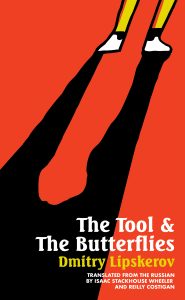 It’s great. And we’re finalizing details to publish our third book by Alisa Ganieva, a writer and person I admire to the absolute highest, with her most socially engaged, political novel yet (which is saying something!), Offended Sensibilities. How can readers forget about Russian literature when this much good stuff is coming out? And between what little we at Deep Vellum are doing, we look around and eternally admire the great Russian books coming from Columbia University Press, Pushkin Press, Oneworld, and New York Review Books and just smile at the rich diversity of Russian writers whom the independent publishing world is providing for readers. But, of course, that means we all have more to do to find the broad readership each author deserves for posterity.
It’s great. And we’re finalizing details to publish our third book by Alisa Ganieva, a writer and person I admire to the absolute highest, with her most socially engaged, political novel yet (which is saying something!), Offended Sensibilities. How can readers forget about Russian literature when this much good stuff is coming out? And between what little we at Deep Vellum are doing, we look around and eternally admire the great Russian books coming from Columbia University Press, Pushkin Press, Oneworld, and New York Review Books and just smile at the rich diversity of Russian writers whom the independent publishing world is providing for readers. But, of course, that means we all have more to do to find the broad readership each author deserves for posterity. WE: I’d be surprised if Lisa Hayden’s translation of Guzel Yakhina’s Zuleikha isn’t nominated, but I’d be shocked if Marian Schwartz’s monumental translation of Solzhenitsyn’s March 1917 cycle doesn’t win! And here’s to putting in print that whenever Robert Chandler completes his translation of Platonov’s Chevengur, that is the Russian translation (that I’m not publishing!) to which I’m most looking forward!!
WE: I’d be surprised if Lisa Hayden’s translation of Guzel Yakhina’s Zuleikha isn’t nominated, but I’d be shocked if Marian Schwartz’s monumental translation of Solzhenitsyn’s March 1917 cycle doesn’t win! And here’s to putting in print that whenever Robert Chandler completes his translation of Platonov’s Chevengur, that is the Russian translation (that I’m not publishing!) to which I’m most looking forward!!